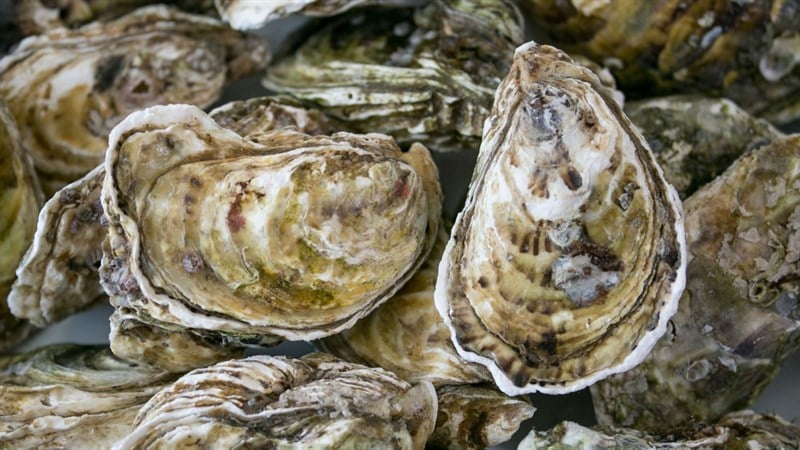Oysters are soft-bodied animals that primarily live in saltwater environments. Additionally, when preparing oysters, you can squeeze a few drops of lemon juice to help clean them and reduce mucus. The nutritional value of oysters is not significantly affected by any other cooking methods.
Typically, every 6 medium-sized oysters will provide the following nutritional content: Calories (50), Fat (1 gram), Protein (6 grams), Fiber (0 grams), Carbohydrate (5 grams). Oysters are also a food source that provides vitamins and minerals, especially vitamin B12 which is good for the brain. Specifically, the nutrients found in oysters include iron, vitamin D, copper, zinc, magnesium, manganese, selenium.
In addition, oysters provide an abundant source of omega-3 fatty acids that are essential for human health.
Although oysters are rich in nutrients, not everyone is suitable to consume this food.

Who should not eat oysters?
According to the recommendations of the US Centers for Disease Control and Prevention, the following individuals should absolutely avoid eating raw oysters:
Individuals with chronic liver disease.
Individuals with underlying medical conditions and those using immune-suppressing medications.
Individuals with a history of seafood allergies.
In addition, some people should limit their consumption of oysters:
Individuals with weak stomachs, poor digestion, or currently experiencing diarrhea: Oysters have a strong flavor and cooling characteristics that can cause abdominal coldness and diarrhea.
Pregnant or breastfeeding women: Nowadays, seafood has increasing amounts of mercury, and if a mother consumes more than 4 times, more than 100g each time per week, it may affect the neurological development of the baby. Moreover, symptoms affecting the nervous system may appear when the child is 7 years old, or even 14 years old.
Individuals with gout or joint inflammation: Oysters can exacerbate urinary calculi, making the disease more severe.

How much is enough?
According to nutrition experts, on average, consuming about 6-12 oysters per week is recommended. Consuming too many oysters will result in an excess intake of nutrients, leading to negative health effects such as excessive zinc, diarrhea, and toxicity…
Some considerations when eating oysters
Do not eat too much
Although oysters are a highly nutritious food, you should not eat too many at once to avoid excessive zinc intake. In addition, oysters contain a fairly high level of cholesterol. 170g of oyster meat can contain up to 85mg of cholesterol. Therefore, no matter how much you like oysters, you should only consume a moderate amount.
Limit the use of mignonette sauce when eating oysters
Typically, oysters are served with mignonette sauce to reduce the fishy taste and enhance the flavor. However, consuming too much mignonette sauce can cause irritation to the nasal and throat mucosa. This condiment can also stimulate the stomach in individuals with poor digestion, stomach pain, or gastritis.

Limit the consumption of raw oysters
In reality, oysters contain a large number of pathogens as they inhabit coastlines, rocky shores, or river mouths, clinging to various substrates such as rocks, crags, piers, consuming epiphytic and benthic organisms, mud, sand, seawater… making it difficult to avoid contamination.
Eating raw oysters can lead to infection with Norovirus, causing gastroenteritis and gastritis. In addition, Vibrio bacteria present in oysters can cause cholera with symptoms such as high fever, septic shock, skin rashes, and even death due to septicemia.
Therefore, it is necessary to avoid and limit the consumption of raw or undercooked oysters. It is best to cook oysters until they open their shells, and if they don’t open, they should be discarded after cooking to ensure safety for health.



































